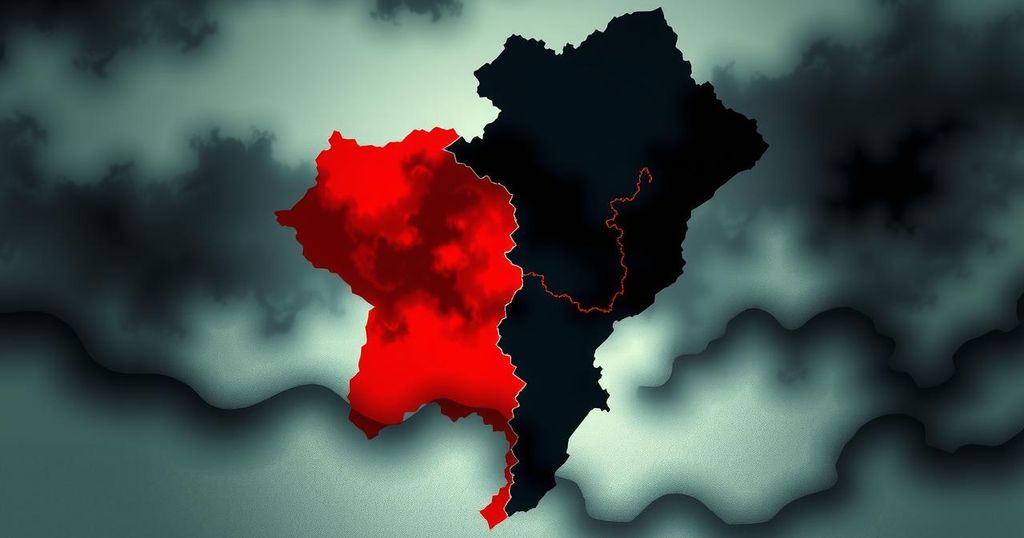DRC Foreign Minister Therese Kayikwamba Wagner accused Rwanda of illegal occupation and interference amid the M23 rebel group’s advances in the eastern Congo, particularly the capture of Goma. The escalating conflict has led to significant humanitarian challenges including displacement and resource exploitation. International leaders and organizations are calling for an immediate ceasefire and resolution of the situation.
In a recent statement, Therese Kayikwamba Wagner, the foreign minister of the Democratic Republic of Congo (DRC), accused Rwanda of illegally occupying portions of Congolese territory amid escalating conflict involving the M23 rebel group. During an interview with the BBC, she suggested that Rwanda is attempting to instigate regime change in the DRC, highlighting the inaction of international leaders regarding violations of international law perpetrated by Rwandan President Paul Kagame.
The M23 rebel group has made significant territorial gains in South Kivu province, which borders both Burundi and Rwanda, resulting in the capture of Goma, the DRC’s largest city and capital of North Kivu Province. This situation has exacerbated fears among Goma’s population, which numbers nearly 2 million, over the impending threats of violence and starvation, with water and electricity services disrupted this week. Previously, approximately 178,000 Congolese citizens had been forcibly displaced from their homes due to the rising conflicts.
Congolese officials have repeatedly accused the M23 of plundering valuable resources from the mineral-rich eastern regions. Similar views have been echoed by various agencies within the United Nations. U.N. Secretary-General Antonio Guterres recently warned that the advances by M23 could escalate into a regional war, demanding an immediate halt to their offensive and withdrawal from occupied territories.
The United States has also voiced its concern, supporting the U.N. Secretary-General’s call for an immediate ceasefire following Secretary of State Marco Rubio’s discussions with President Kagame. Additionally, the Southern African Development Community (SADC) convened an emergency meeting to address the worsening security situation in eastern DRC, following the tragic loss of 13 South African soldiers during recent conflicts.
South African President Cyril Ramaphosa condemned both the M23 actions and Rwandan military involvement, attributing the surge in violence to the rebel group and Rwandan Defense Force’s engagement with the Armed Forces of the DRC. Notably, troops from Malawi and Tanzania have also suffered casualties while working to restore peace in the region.
The ongoing conflict in the eastern Democratic Republic of Congo (DRC) involves multiple factions, primarily the M23 rebel group, which has been accused of receiving support from Rwanda. This area is notable for its wealth in minerals and has been a hub of violence and instability, leading to significant humanitarian crises. The international community, including the United Nations and the United States, has increasingly called for intervention and a ceasefire amidst fears of a broader regional conflict.
The situation in eastern DRC remains dire, compounded by the violent confrontations between M23 rebels and Congolese forces, with significant civilian displacement and casualties. Accusations against Rwanda of supporting these rebels, alongside international calls for a ceasefire, highlight the complexities of the conflict. As discussions continue among regional leaders and international stakeholders, the urgency for peace and stability in the DRC becomes more pressing.
Original Source: www.upi.com




